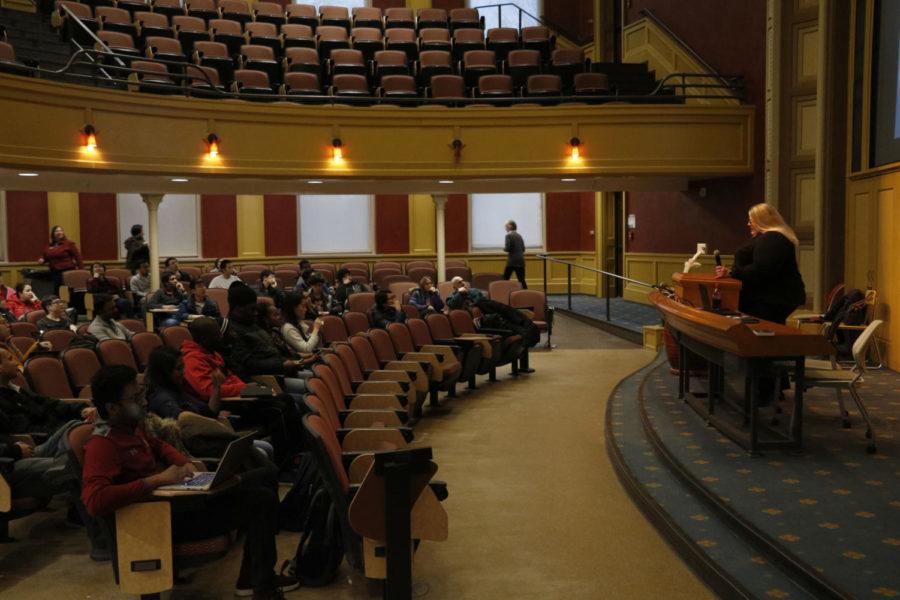Immigration Attorney on H-1B Visa
Jackie Norman/Iowa State Daily
Megan Lantz helps to explain the H-1B visa in Curtis Hall on Feb. 26 where people could come in and ask questions. The H-1B visa is a temporary work visa that is offered to immigrants with a job offer in a specialty occupation in the United States.
March 1, 2018
H-1B is a temporary visa type that employers petition for their highly educated non-U.S. employees to work legally. Applicants are required to have at least a bachelor’s degree.
Megan A. Lantz of Barten Law Office Immigration Lawyers gave international students at Iowa State a presentation on H-1B visa on Monday night in Curtiss Hall.
When talking about the classification for H-1B visa in the law, Lantz said the rumors about the change on H-1B are not true.
“I know with the new presidency, people heard a lot of rumors about the temporary working visa, but to my understanding, nothing in the law has changed about H-1B,” Lantz said.
Although, a few changes have been made regarding the H-1B visa evaluation process by administration.
“For example, USCIS (United States Citizenship and Immigration Services) now often use passive-aggressive strategy to bury lawyers and their clients in requests for evidence, clarification on points already clear on initial filing,” Lantz said. “Sometimes, applicants would feel so discouraged doing the same thing over and over, they would just give up.”
USCIS would also ask for proof for sufficient work form H-1B visa holders, question the skill level of a certain position and scrutinize initial petitions, according to Lantz.
Lantz then introduced the current regulations on H-1B visa.
The numerical limitation for the petitions are 65,000 cases a year and 20,000 for U.S. earned master’s or higher degree, and legislation limited duration of H-1B visa to six years. Eventually, workers could have dual intent to stay either temporarily or permanently, whereas it used to just allow staying temporarily.
The petitioners of the H-1B visa must be U.S. employers. They have to have an employer/employee relationship with applicants for the H-1B petition, Lantz said.
Lantz said the reason some employers are not willing to hire non-U.S. workers is because the price is too high, and the result might not always be positive.
“For each applicant, employers need to pay up to $3,000 for the petition process,” Lantz said. “That includes the Form I-907 premium processing fee, Form I-129 fee, data collection ACWIA (American Competitiveness and Workforce Improvement Act) fee and anti-fraud fee. Plus, not every applicant is going to get the visa after the process.”
In the end, Lantz pointed out that international students or employees should avoid committing crimes that might affect their H-1B application, such as lying to the police, driving under the influence, threatening other people and consuming alcohol in a public place.
Joani Mato is a fourth year Ph.D. student in chemistry. He is graduating in a year and hopes to find employment in the U.S. He said the presentation was helpful and informative.
“I’ve learned the basic law behind the H-1B visa from the attorney and the details about the application process,” Mato said. “Many people want to get a job after college, and I don’t think anybody would be familiar with the legal stuff. So, it’s definitely helpful and important for the university to have events like this.”
















